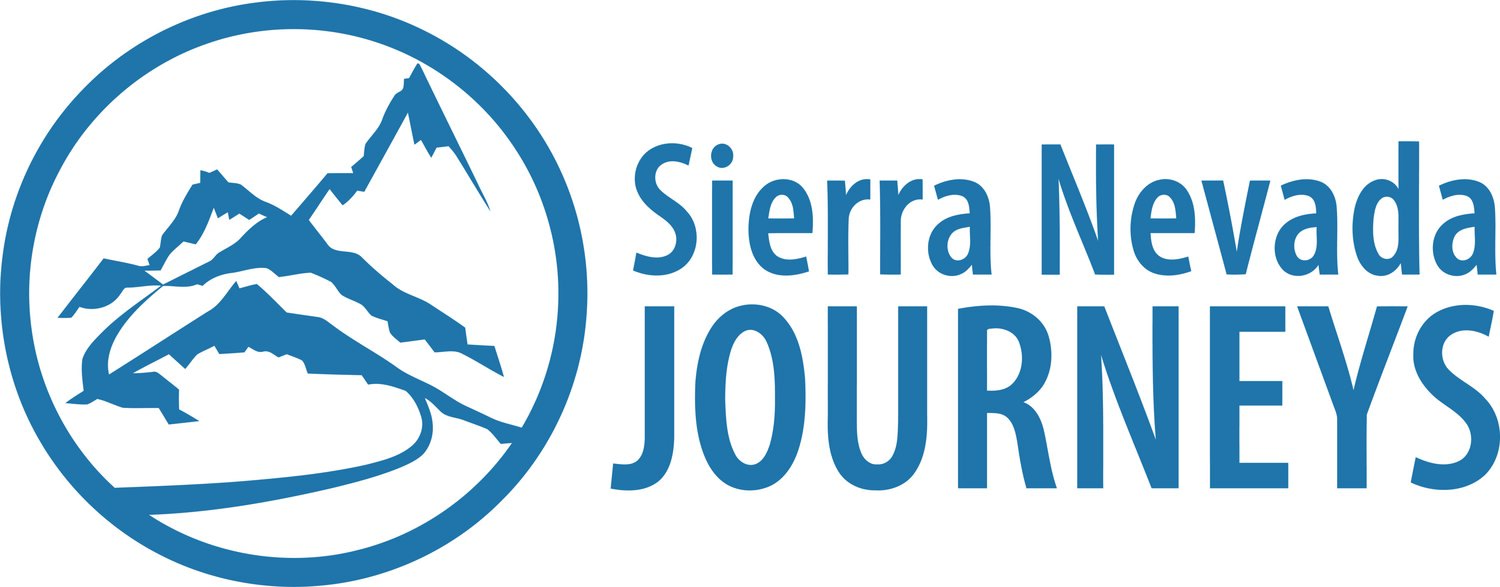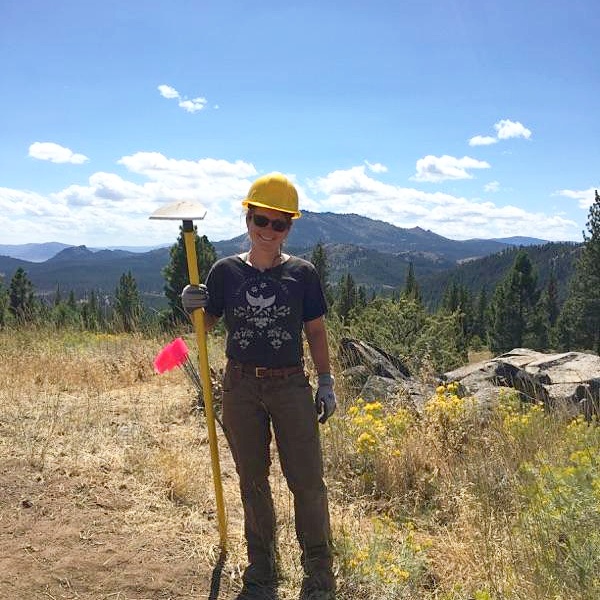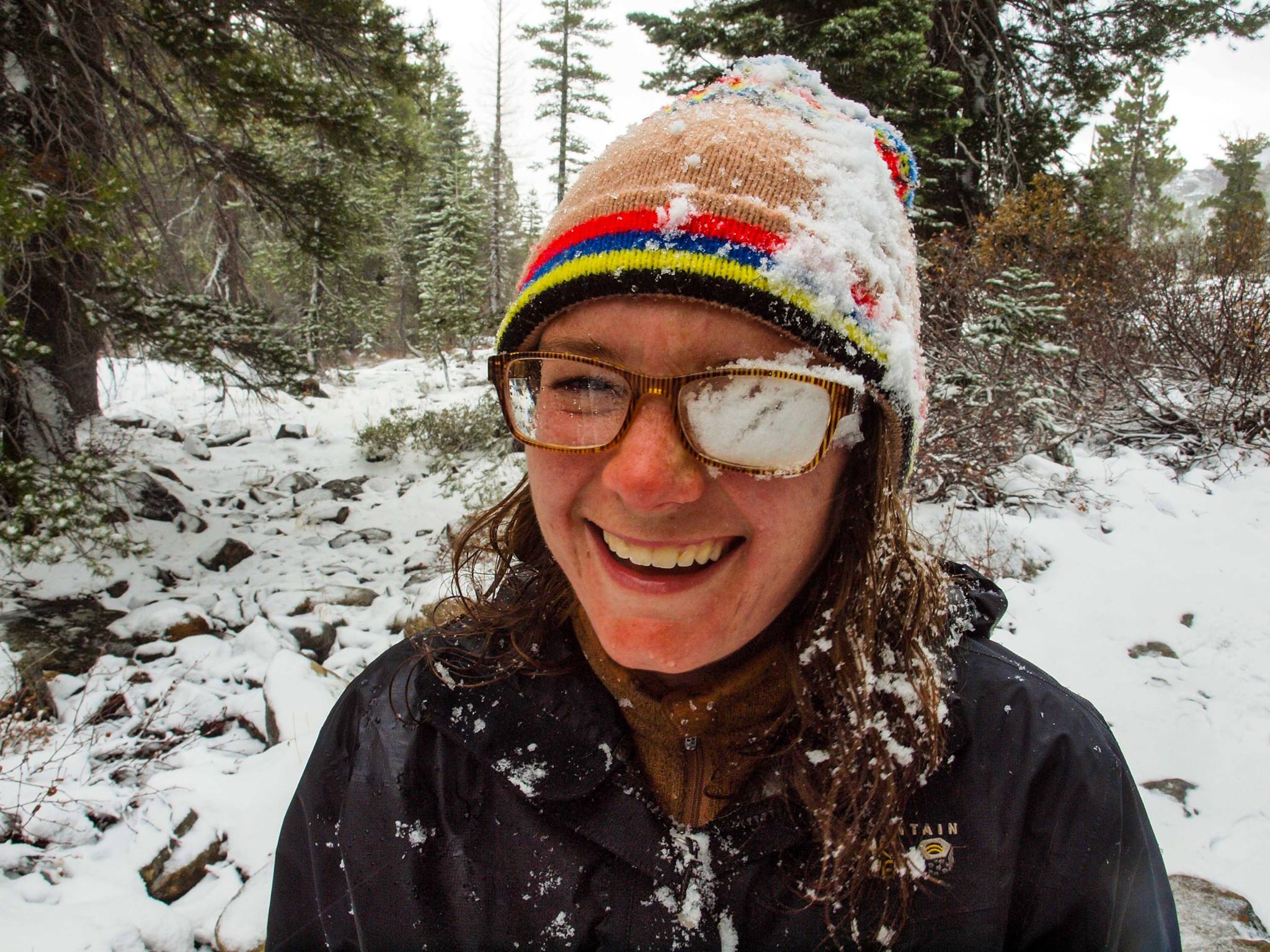“ROSI’s aren’t meant for desk jobs. They prefer the walking, jumping, rolling-down-hills-to-lunch sort of job. ”
Micaela Petrini is a Sierra Nevada Journeys Residential Outdoor Science Instructor (ROSI) which means Micaela’s days are focused on finding exciting ways to teach science education as students explore the great outdoors. Like Micaela, our ROSI’s believe hands-on instruction is the key to teaching children. They find ways to steer students toward discussions about scientific processes and concepts when they smell a flower, chase a squirrel, find a burned log, or even step in deer poop.
ROSI’s aren’t meant for desk jobs. They prefer the walking, jumping, rolling-down-hills-to-lunch sort of job. They’ll break for the funny, unexpected interruptions of an animal sighting or the occasional need to rub charcoal on their faces to get kids excited about fire ecology. See why Micaela has found working as an ROSI so fulfilling and apply to become a ROSI with Sierra Nevada Journeys today!
Q: What made you think working as a Residential Outdoor Science Instructor (ROSI) would be a good experience?
When I have the chance to give something to another individual or group of individuals, and do so in the outdoors…it’s bound to be a good experience.
Q: What is your favorite lesson you’ve taught as a ROSI?
Forest Hike. It is one of our least structured lessons and full of teachable moments. Step on deer poop? Let’s talk about predator/prey relationships. Smell a flower? We’ll learn about botany and forest ecology. Find a burned log? Let’s introduce fire ecology and smear charcoal over our faces. Chase away a sneaky ground squirrel? Time to play “Don’t Touch My Pine Nuts!” and learn about adaptations.
Q: How is being a ROSI different than working in a classroom or having a desk job?
For one thing, there is no desk! Every day the kids and I are walking, running, jumping. Sitting? Sure, but under a pine tree, at the top of a hill, in a meadow. I follow a curriculum but there is room to incorporate different activities and games into the lessons. Having activity and flexibility in the day allows the youth to learn at their own pace and comfort level. Many of the kids really thrive in this learning environment.
Q: Why do you think it is important to get kids outdoors, learning science?
A great mentor of mine once told me kids never fully retain what they’ve learned until they have used as many of their senses as possible on that path to learning. That full immersion is being lost in some classrooms today, and when it goes, so does some of the magic of learning.
Q: How do you feel like you’ve made a difference in the lives of the kids you’ve worked with? Do have a memory you’d like to share about an activity outcome or child who felt affected by your work?
“These youth come here to learn exciting concepts and participate in the concrete and abstract sciences. But some lessons are of a more lasting kind, and I am so lucky to be a small part of giving it to them.”
The children write evaluations of their time here on the day they leave. We get the chance to read what they wrote, and one child who was in my trail group answered the question “What did you learn about yourself while you were here?”. His answer was “I learned how to be a kid again. I hadn’t remembered that for a long time”.
It is outcomes like this that remind me of how special childhood is, and how quickly it can be taken away or forgotten. These youth come here to learn exciting concepts and participate in the concrete and abstract sciences. But some lessons are of a more lasting kind, and I am so lucky to be a small part of giving it to them.
Q: What type of person would you recommend this job to?
An individual with the capacity to, in a single day, do the following (and more): encourage the kid who never talks, to answer a question; politely turn down the kid who always answers every question; roll down a hill until your lunch reappears; teach four science lessons; refrain from panicking when a child steps in front of the loaded slingshot; channel your inner peace when a child has (for the fifth time) thrown a pinecone at someone; run around smelling pine bark; find teachable moments; laugh; discipline; care.
Q: What is one piece of advice you’d tell someone who is starting as a ROSI with SNJ?
No matter what lesson you are teaching or what activity you are leading, an animal sighting is going to change it all. And that’s okay.
Residential Outdoor Science Instructors (ROSIs) deliver outdoor science education and summer camp programming at our campus in Portola, CA. Our stellar team of instructors get to spend every day in the outdoors, changing the lives of children through empowerment, critical thinking, and natural resource stewardship. Our ROSIs join us from across the country and come from a variety of academic majors.


